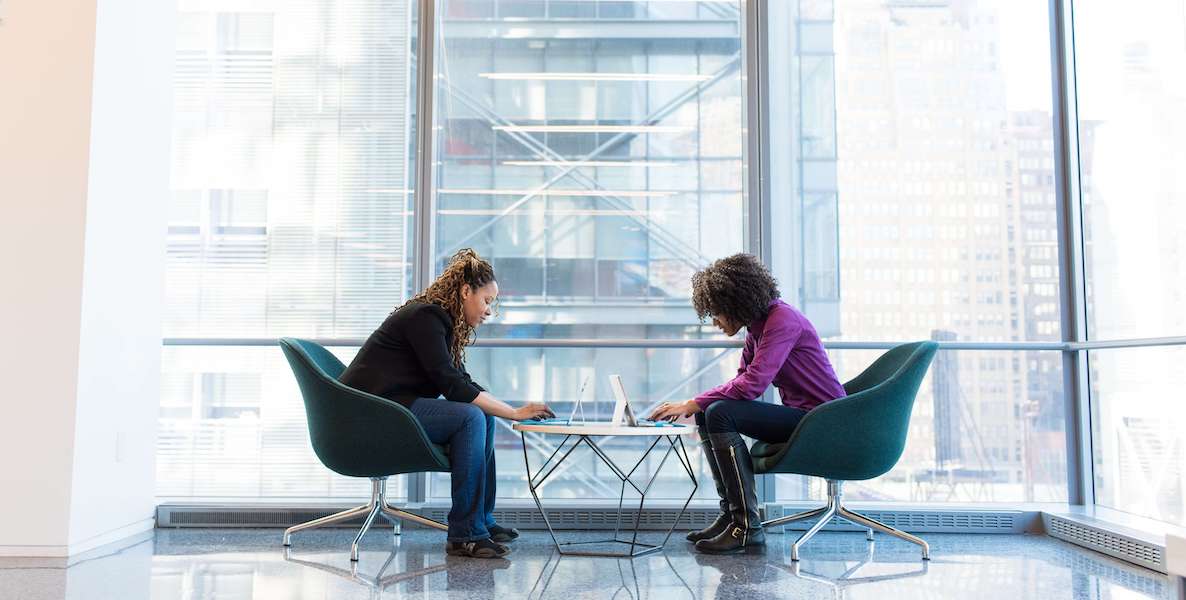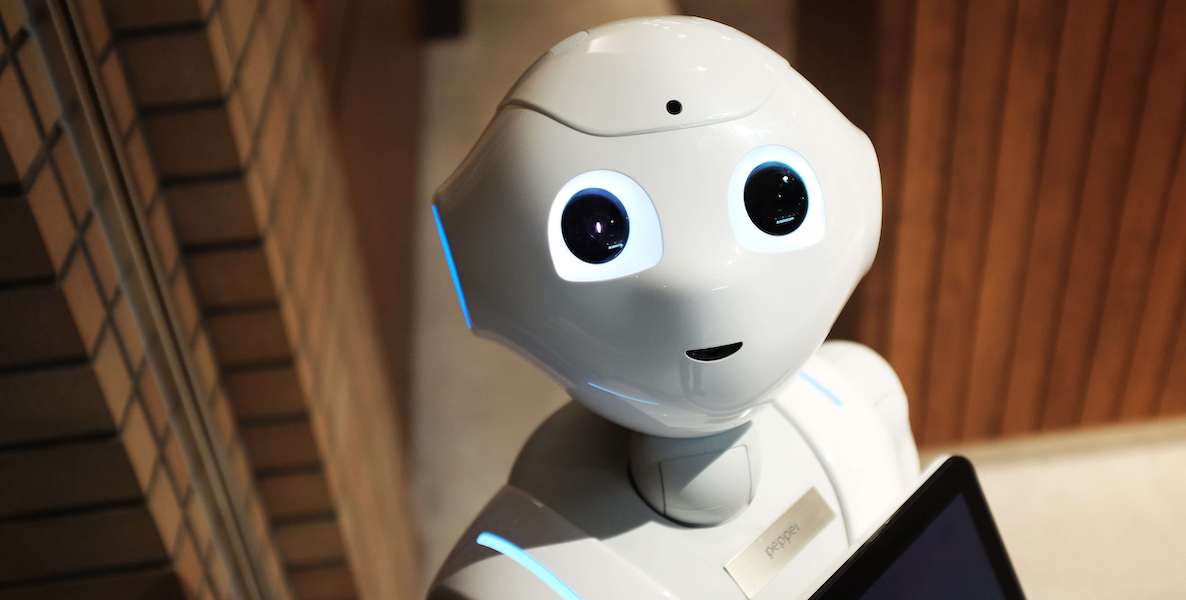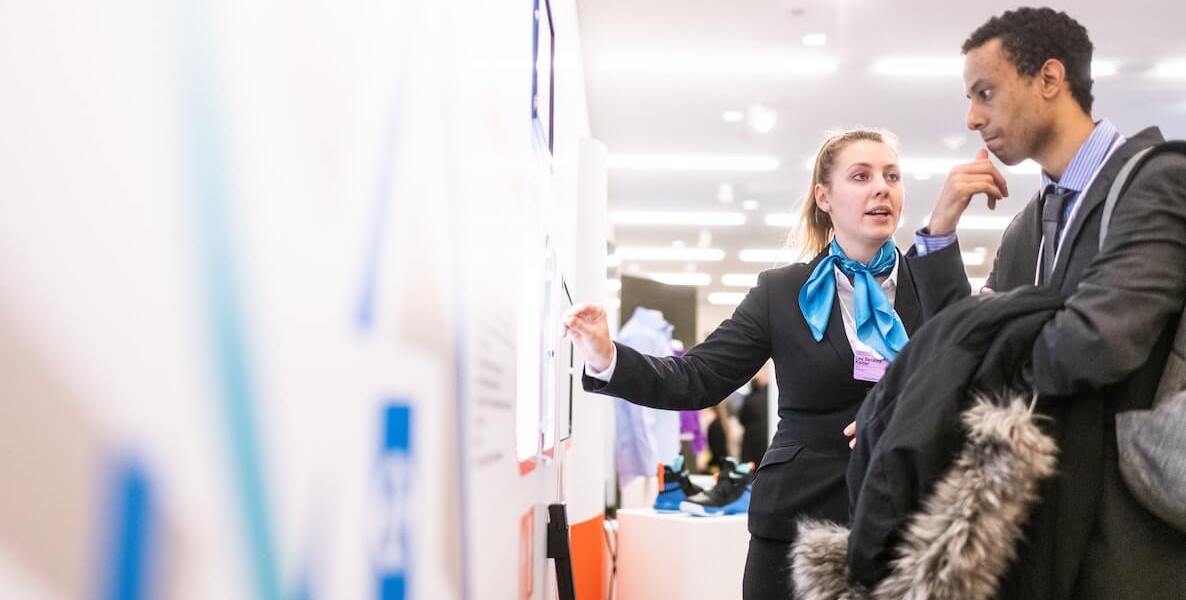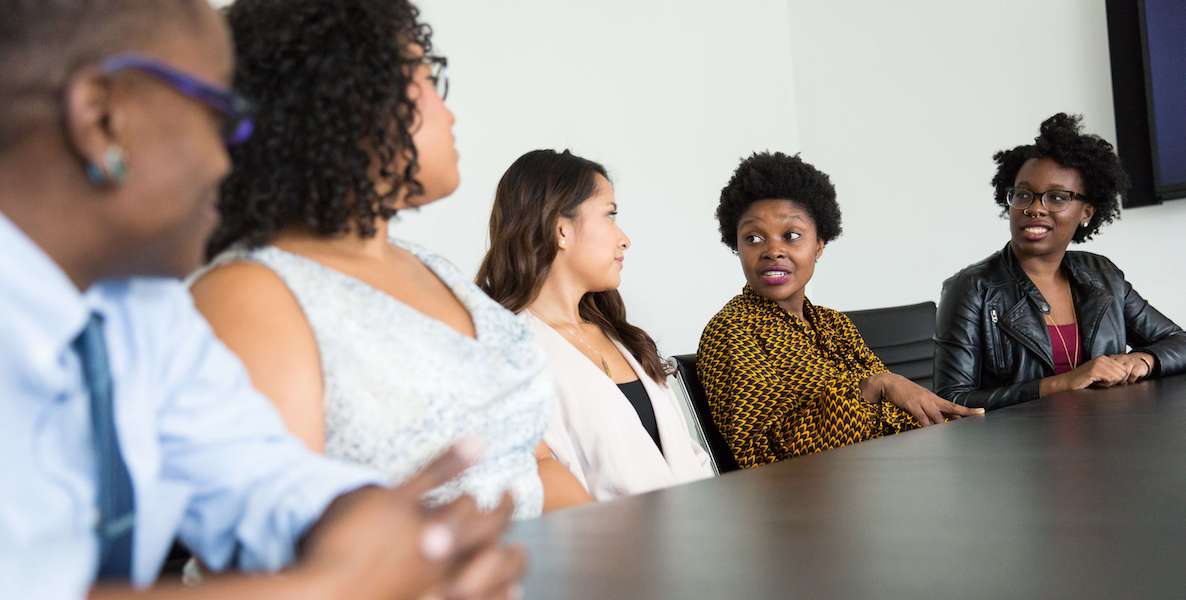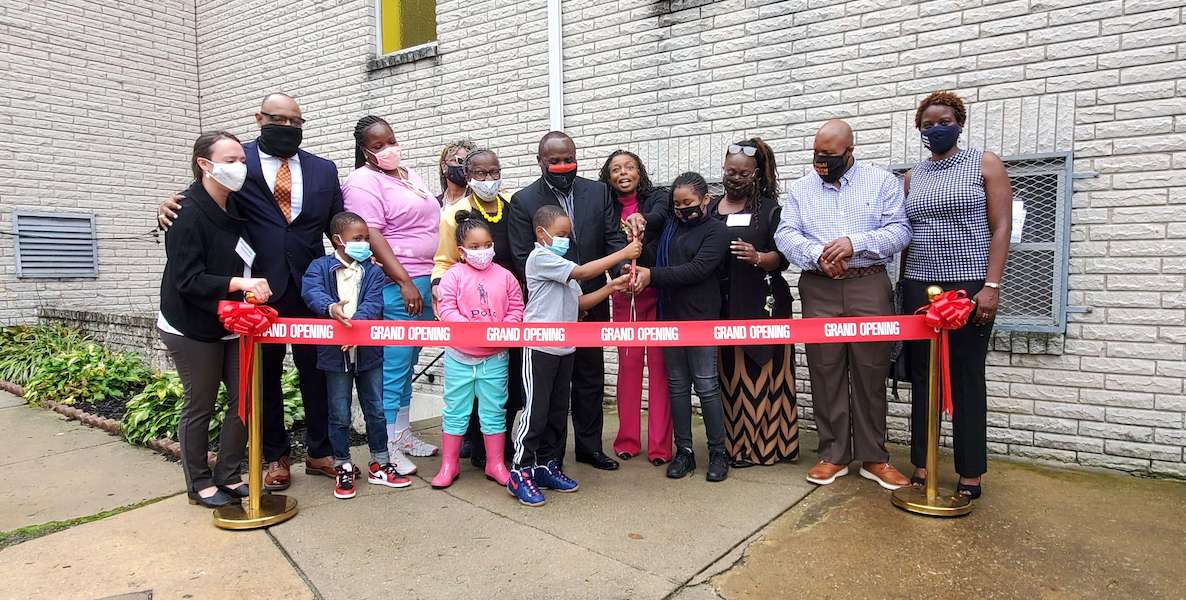It was 2016 and my daughter Isabelle’s first time voting. We thought we were living history and electing the first woman president. We took selfies and planned a late-night celebration with apple pie and bubbly.
We all know the rest of that story.
Join the Future Works AllianceDo Something
Don’t get me wrong: I believe elections matter. Political power and control of policy, laws, budgets and more is secured by winning elections. Yet the government and elections are both being disrupted by technology and not adapting quickly enough. Because of social media, our cultural expectations for regular channels of two-way engagement are here to stay. People–as customers, workers or citizens–expect to be heard because social media and a culture of responsive communication are here.
Local governments need authentic equity infrastructure for transparent, meaningful, two-way engagement. Leaders need to listen and learn from historically disadvantaged citizens.
Power can now be pulled from all different sources and yielded wisely or unwisely with truth or lies. If the government is unresponsive to new realities, it risks being disregarded as inauthentic or worse, illegitimate.
Chris Rock, in his genius, said things best in his September 24 Saturday Night Live appearance: “We need to re-negotiate our relationship to the government…does it work?…We have Congress, our dukes and duchesses …rich people making decisions for poor people!…that is like having your handsome friend giving you dating advice!”
And, I agree, wholeheartedly. We need what I call “equity infrastructure”—structured and proactive engagement with historically disadvantaged residents in the design of social solutions. Then, we can create more sustainable solutions to major problems. We can also rebuild trust in our democracy.
Why equity infrastructure?
The Future Works Alliance In a nutshell
Similarly, people around the globe are developing Citizens Assemblies. Locally, Philadelphia Community Stakeholders recently engaged nearly 4,500 parents and caretakers to figure out how to address their children’s educational needs during Covid-19, and their first-ever pod in West Philly opened its doors in October as a result.
To borrow a Biden-ism, Look, here’s the deal: Local governments need authentic equity infrastructure for transparent, meaningful, two-way engagement. Leaders need to listen and learn from historically disadvantaged citizens as a manner of governing.
Global challenges are landing on our doorstep. We need to design solutions with the people most affected by serious problems: Namely, people of color and other vulnerable populations.
In my view, the most urgent problem was front and center last week at the World Economic Forum, which released its Future of Jobs Report 2020. According to the report, advances in automation, platforms, robotics and artificial intelligence will continue to accelerate and affect U.S. Black, Hispanic and women workers most.
The World Economic Forum’s Future of Jobs Report 2020 estimates that by 2025, 85 million jobs may be displaced by a shift in the division of labour between humans and machines, while 97 million new roles may emerge that are more adapted to the new division of labour between humans, machines and algorithms.
“Automation, in tandem with the Covid-19 recession, is creating a ‘double-disruption’ scenario for workers… Forty-three percent of businesses surveyed indicate they are set to reduce their workforce due to technology integration, 41% plan to expand their use of contractors for task-specialized work, and 34% plan to expand their workforce due to technology integration…
…we estimate that by 2025, 85 million jobs may be displaced by a shift in the division of labour between humans and machines, while 97 million new roles may emerge that are more adapted to the new division of labour between humans, machines and algorithms”
Artificial intelligence and automation will both eliminate, and create, new jobs.
We can do more now to ensure quality jobs land here. We can enact smarter policies to welcome and nurture new, forward-thinking businesses. We can better support worker’s migration from obsolete jobs into future-proof careers.
My vision is people will have better career opportunities and improved quality of life even as advanced technologies rapidly change our physical, digital and biological worlds.
How do we begin?
Perhaps Chris Rock would argue that workers should be included in the redesign of talent support systems. And I would agree. Right now, we do not have adequate equity infrastructure to do this.
Civic associations, zoning committees and business improvement districts are not diverse enough representations of our citizens. How can leaders possibly navigate tumultuous times without a better sense of what people think, need, want? Are Facebook and Twitter reliable barometers? How is that working?
Equity infrastructure done well would bring racially diverse and deeply human perspectives to the table. It is an essential ingredient of future-proofing society and solving big problems.
Many leaders resist equity infrastructure or think it is unimportant. But successful corporations know positive customer experiences are absolute gold in the era of social media.
The gap between customer service experiences in the private sector and the dearth of human-centered response in the public sector is driving down trust.
For example, customers have a frictionless, pleasant experience with Amazon, for example. Then, the same people have wildly irrational and frustrating interactions with City government, schools, police and many other public institutions. Good things do not come from perpetual frustration.
To meet the moment and future-proof our region, we need equity and trust. This requires some humility. What department head wants entry-level employees to weigh in on budget or policy matters? What CEO wants to listen to an intern? Checking a box with an annual survey does not cut it.
A common question: Is equitable engagement practical?
A better question: Are we even trying?
From Anne Gemmell on the future of workRead More
As for the election, I may not be as excited as I was four years ago, but I voted early and I look forward to the work ahead. We have a generational opportunity to shape our future instead of letting it happen to us. If you would like to join the Future Works Alliance PHL or learn more, contact me on LinkedIn.
Anne Gemmell is the founder of Future Works Strategy, a consulting business focused on future-proofing. She is the former director of Special Initiatives in the City of Philadelphia Office of Workforce Development, where she was responsible for creating strategic plans focusing on emerging technologies, their effects on talent pipelines and actions for “future-proofing” our local economy. A longtime policy strategist, she also worked with the Kenney administration on the equitable design, advocacy and successful funding of the PHL PreK program.
Photo by Christina @ wocintechchat.com / Unsplash


